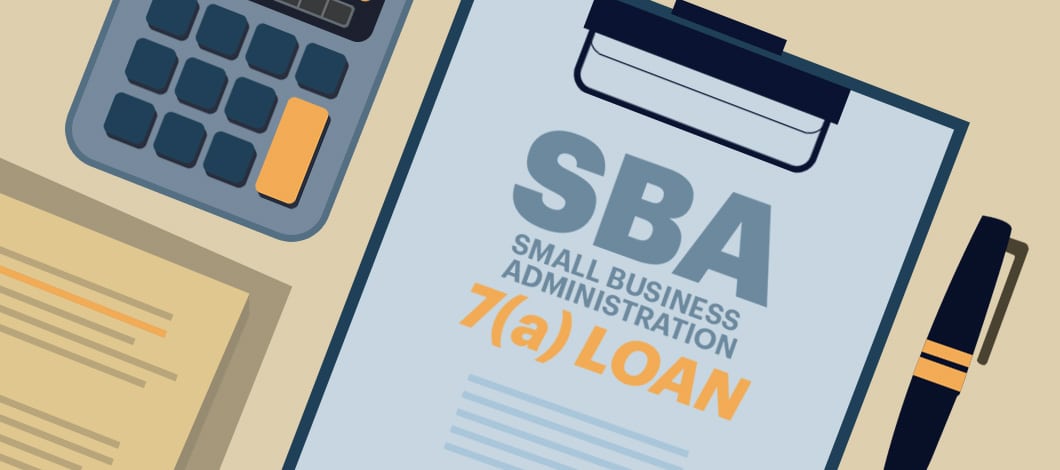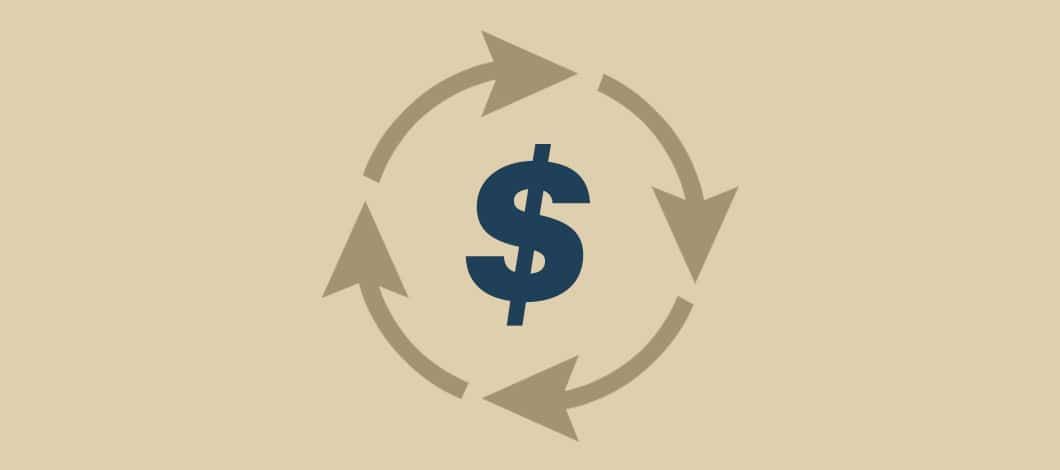The Small Business Administration (SBA) 7(a) loan program offers affordable financing options for entrepreneurs.
Here’s what you need to know. We’ll cover what the program is, what types of loans are available, who qualifies and how to apply.
What Is the SBA 7(a) Loan Program?
The SBA 7(a) loan program provides loans with affordable rates to eligible small businesses with special financing requirements. It makes loans in amounts up to $5 million available for purposes such as purchasing real estate and fixtures, funding short-term and long-term working capital and refinancing debt.
SBA loans are designed to help small business owners who may have difficulty qualifying for other business financing options. They represent a resource for qualifying small businesses which have been turned down for conventional bank loans.
Like other SBA loans, SBA 7(a) loans have favorable terms and rates because they are guaranteed in part by the federal government. The government agrees to repay a percentage of loans if the borrower defaults, reducing risk to lenders. In return for federal guarantees, lenders agree to make loans available on affordable repayment schedules with interest rates capped by regulatory limits.

What Types of SBA 7(a) Loans Are Available?
The SBA 7(a) loan program includes a number of loan types, including:
- Standard 7(a) loans
- 7(a) Small loans
- SBA Express loans
- Export Express loans
- Export Working Capital loans
- International Trade loans
- Veterans Advantage loans
- CAPLines
Each type of loan has its own purpose, maximum amounts, term lengths, interest caps and other specifics.
Standard 7(a) Loans
Standard 7(a) loans are the basic form of 7(a) loan. Their outstanding characteristics include:
- Available in amounts up to $5 million
- SBA guarantees up to 85% for loans up to $150,000 and 75% for loans in greater amounts
- Interest rates up to prime plus 4.75%
- Terms up to 25 years for real estate loans
Because they are available in large amounts, Standard 7(a) loans are especially suitable for businesses that need financing for real estate. But they can be used for other purposes such as renovating buildings, purchasing equipment, financing working capital or refinancing debt.
7(a) Small Loans
7(a) Small loans are similar to Standard loans but available in smaller amounts:
- Available in amounts up to $350,000
- SBA guarantees up to 85% for loans up to $150,000 and 75% for loans in greater amounts
- Interest rates up to prime plus 4.75%
- Terms up to 25 years for real estate loans
Small 7(a) loans can serve the financing needs of business owners who don’t require the larger amounts of capital available from Standard 7(a) loans.
SBA Express Loans
Generally similar to 7(a) Small loans, SBA Express loans can be processed more quickly. SBA Express loans are processed by the SBA within 36 hours, whereas Standard 7(a) loans and 7(a) Small loans can take 5 to 10 business days. Their other main characteristics include:
- Available in amounts up to $500,000
- SBA guarantees up to 50%
- Interest rates up to prime plus 4.75%
- Terms up to 25 years for real estate loans
Express loans may be useful for business owners who need cash quickly for emergencies or to take advantage of emerging opportunities.
Export Express Loans
Exports Express loans are available even faster than SBA Express loans, with the SBA processing them within 24 hours. Their other characteristics include:
- Available in amounts up to $500,000
- SBA guarantees up to 90% for loans up to $350,000 and up to 75% for loans in greater amounts
- Interest rates up to prime plus 4.75%
- Terms up to 25 years for real estate loans
Exports Express loans are useful when business owners need financing more quickly or in larger amounts than SBA Express loans permit.
Export Working Capital Loans
Export Working Capital loans are designed specifically for businesses that generate revenue from export sales and need additional financing to support these sales.
Their features include:
- Available in amounts up to $5 million
- SBA guarantees up to 90%
- Interest rate negotiated between lender and borrower with no SBA cap
Because Export Working Capital loans are used to finance export sales, inventory and accounts receivable may serve as collateral.
International Trade Loans
International Trade loans are designed to help businesses that are growing because of exports or which need to upgrade to compete with foreign importers.
Their features include:
- Available in amounts up to $5 million
- SBA guarantees up to 90%
- Interest rate negotiated between lender and borrower subject to SBA cap of prime plus 4.75%
International Trade loans can be used for fixed assets for real estate, construction and equipment expenses and for working capital for exports.
Veterans Advantage Loans
Veterans Advantage loans make SBA loans available to veteran-owned small businesses at reduced rates. To be eligible, businesses must be at least 51% owned by:
- Honorably discharged veterans
- Active-duty military service member eligible for the military’s Transition Assistance Program
- Service-disabled veterans
- Reservists and/or active National Guard members
- Current spouses of veterans, active-duty service members, Reservist, National Guard members
- Widowed spouse of service members who died in service or as a result of a service-connected disability
Businesses in these categories may apply for the types of SBA loans listed above at Veterans Advantage reduced rates.
CAPLines
CAPLines are lines of credit, which are accounts with a set limit of funds that may be spent up to that amount. They are used to help businesses finance short-term and cyclical working capital.
They come in 4 varieties:
- Seasonal CAPLines, used to finance seasonal increases in costs of accounts receivable, inventory and labor
- Contract CAPLines, used to pay for direct labor and materials costs for performing assignable contracts
- Builders CAPLines, used to cover direct labor and materials costs for small general contractors, builder construction or building renovation
- Working CAPLines, used to provide funding for cyclical growth, recurring needs or short-term needs for businesses unable to qualify for standard forms of long-term credit
CAPLines can be revolving or nonrevolving. Funds from revolving CAPLines can be repaid and spent again up to the designated limit, while funds from non-revolving accounts can be spent only once. Most types of CAPLines can be either revolving or nonrevolving, but Working CAPLines are exclusively revolving.
Applications for revolving CAPLines can be submitted under Standard 7(a) loan applications for amounts up to $5 million. CAPLines have a maximum maturity of 10 years except for Builders CAPLines, which have limits of up to 5 years.

Who’s Eligible for an SBA 7(a) Loan?
SBA 7(a) loan requirements lay out several conditions of eligibility. Key SBA 7(a) requirements for eligibility include:
- The business must be operating for-profit
- The company must be doing business or planning to do business in the United States or its territories
- The owner must have reasonable equity to invest
- The business owner must have used other financing resources, including personal assets, before seeking SBA assistance
There are special considerations for certain types of businesses and individuals, such as franchises, recreational facilities and farms. Certain types of businesses are prohibited from participating in the SBA’s programs, such as real estate investment firms, banks and businesses involved in gambling.
The SBA’s guidelines provide a general framework for individual lenders to determine applicant eligibility. Some lenders may have their own additional eligibility requirements, such as requiring a minimum credit score. Some 7(a) loans may require collateral. For example, Standard 7(a) loans of $25,000 and up require collateral.
Normally, most applications need to be approved directly by the SBA, but lenders who qualify for the SBA’s Preferred Lender Program have leeway to determine eligibility without SBA review.
-
Do You Qualify?
Through Fast Capital 360’s SBA lending partners, you are likely to qualify for an SBA Loan if:
- You’ve been in business 2 years or longer
- You bring in annual revenue of $50,000
- You have a credit score of 650 or better
How Do I Submit an SBA 7(a) Loan Application?
To apply for an SBA 7(a) loan, you must submit an application through an SBA-approved lender. This involves a 5-step process:
- Determine your eligibility
- Select an SBA-approved financial provider
- Prepare required paperwork, such as business plans, financial statements, tax returns and financial projections
- Submit your application to the SBA
- Close your loan through your lender
The SBA’s Lender Match tool can help connect you with potential lenders. Lenders who qualify as SBA Preferred Lenders can process your loans more quickly than other providers.
To assist you with the process of finding a lender, Fast Capital 360 provides an online application form you can fill out to help us pair you with SBA lenders. Filling out the form doesn’t incur any obligation and will not impact your credit score.
Start Your 7(a) Loan Application Process Today
The SBA 7(a) loan program extends affordable loan opportunities to small business owners by providing partial government guarantees to lenders, incentivizing favorable terms and rates. The program includes a variety of loan types, including standard loans for amounts up to $5 million, small loans for up to $350,000 and Express loans with accelerated turnaround time.
Note that to be eligible for a 7(a) loan, you must be a for-profit business operating in the U.S. or its territories, you must have owner equity to invest and you must have explored other financing opportunities.
To find out what financing options you may qualify for, including SBA loans and other types of loans, take a few minutes to fill out our free no-obligation online prequalifying application.










